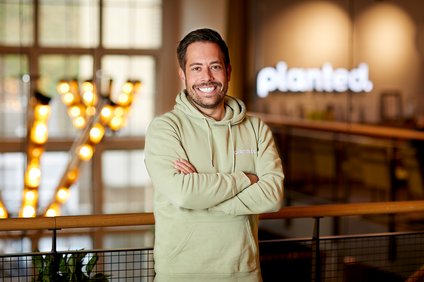People - 04.10.2017 - 00:00
Reducing congestion in cities
During rush hour many cars get stuck in traffic jams. What are the challenges when developing business models to reduce traffic congestion and how can these business models be improved? Thomas Scheuerle examined these questions in his doctoral thesis.

4 October 2017. "The idea for my doctoral thesis came to me while stuck in traffic on an urban motorway in Toronto during rush hour," says Thomas Scheuerle. What solutions exist to reduce congestion and emissions caused by motorised private transport? And what challenges do mobility services face? Scheuerle addressed these questions in his doctoral thesis "Entwicklung und Gestaltung sektorübergreifender Geschäftsmodellinnovationen für integrierte Mobilitätsdienstleistungen in Städten" (Development and design of cross-industry business model innovations for integrated mobility services in cities).
Combining mobility solutions
Many cities are attempting to connect public transport with "sharing" offers, taxis or e-mobility solutions as easy as possible. For example, with information on different modes of transport or central booking and billing facilities. The aim here is to reduce the problem of ever-increasing congestion. However, the involved public- and private-sector enterprises and non-profit organisations have very different goals and requirements. "This makes the challenges faced when developing such platforms all the more complex," says Thomas Scheuerle. "For example, with a view to securing direct customer contact or the technical mapping of cooperation."
Platform for own business models
To offer customers attractive alternatives to their own car, a national, technologically sophisticated platform is required, which offers consumers even more automated, personalised solutions. This would also increase the likelihood to be economically viable for the companies concerned, while at the same time effectively ensuring sustainable, city-compatible mobility. Thomas Scheuerle is confident that this platform can be best provided by a private-sector company in a digitally driven competition. "However, a platform should allow public transport providers and other mobility services to implement their own local business models via the platform. This would also safeguard the concept of mobility against purely economic motives."
The war on congestion
"I hope that my thesis will contribute to the further development of modern mobility concepts," says Thomas Scheuerle. Even after completing his doctoral thesis, Scheuerle will remain dedicated to the development of solutions that combine economic efficiency with positive social impact. In order to be able to participate more directly in the elaboration of solutions, he will be putting his insights into practice and will promote sustainability-oriented start-ups and innovations. Mobility remains an important specialization. He will continue to lecture at the University of Freiburg (Breisgau, Germany). "That’s because I also want to work closely with universities on the development of innovations. This will hopefully further reduce traffic problems and other social challenges in future."
More articles from the same category
Discover our special topics











